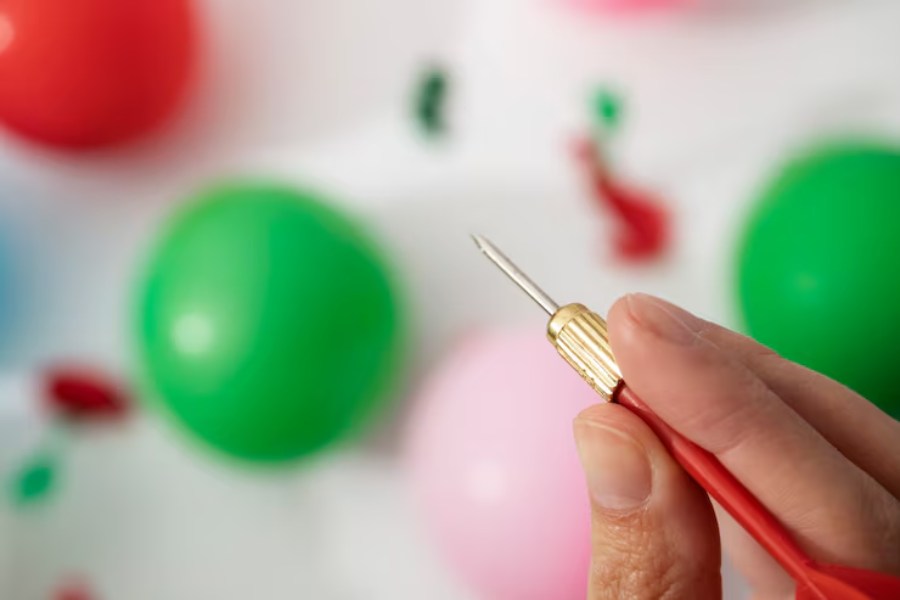Through hole pogo pins are essential components in modern electronics, providing reliable connections where precision and durability matter most. Unlike surface mount alternatives, through hole pogo pins are inserted directly through circuit boards, creating sturdy mechanical bonds that withstand repeated use. Engineers favour these connectors for testing equipment and charging solutions because their unique design ensures stable contact in demanding environments.
What Are Through Hole Pogo Pins?
Through hole pogo pins use spring-loaded contacts, inserted through plated holes in a printed circuit board (PCB), to achieve secure, durable electrical connections. These connectors use a barrel, plunger, and internal spring to provide consistent contact force, ensuring stable signal transmission and power delivery.
Manufacturers such as Promax in China produce through hole pogo pins with tolerances as tight as ±0.02mm for both the pin diameter and body length. Engineers select these pins for applications that demand repeated mechanical engagement and retention strength, including fixture testing and medical device charging interfaces. Pin retention depends directly on the quality of the solder joint and the precision fit between the pin and PCB hole.
Key features include a strong mechanical bond, low contact resistance (typically under 50mΩ per pin), and long cycle life, with reliable performance over 10,000 mating cycles. Surface finishing options—like gold plating—improve corrosion resistance for environments with high humidity or potential contaminants. Promax supports custom through hole pogo pin configurations, offering unique cap or tail shapes as well as full or partial gold plating, aligning with project or industry requirements across consumer electronics and industrial automation sectors.
Key Features of Through Hole Pogo Pins
Through hole pogo pins use precision-engineered, spring-loaded contacts inserted and soldered into PCB holes to deliver high reliability across testing, charging, and data applications. Promax in China produces these connectors with strict process controls for consistent quality and mechanical stability.
Design and Construction
Through hole pogo pins include four main elements: tail pin, barrel, plunger, and spring.
- The tail pin, measuring 0.50–6.00mm, inserts and solders into the PCB for a rigid, immovable anchor after installation.
- The barrel is brass plated with gold, offering both mechanical strength and low-resistance conductivity.
- The plunger moves within the barrel, enabling stable vertical deflection during repeated compressions.
- The internal spring, often aviation-grade beryllium copper, delivers precise force and fast recovery.
PCB holes measure 0.80–5.00mm for barrels sized 0.50–10.00mm diameter, ensuring enough gap for secure solder joints. Promax uses custom tooling and plating lines to supply options for consumer electronics, medical devices, and automotive modules.
Electrical Performance
Through hole pogo pins achieve high current ratings and low contact resistance by design.
- Most models support continuous currents from 2A to 8A, with some specialized designs handling higher values.
- Gold-plated contact layers (Au-Ni-Cu stack) ensure stable signal transmission and excellent corrosion resistance.
- The spring-loaded mechanism compensates for minor PCB variances and helps prevent signal dropout from vibration or movement.
- Certain types operate at RF frequencies up to tens of gigahertz, supporting antennas or high-speed data needs.
Promax ensures every batch meets electrical standards for signal integrity in quality-sensitive industries.
Durability and Lifespan
Through hole pogo pins excel in durability for demanding electrical contacts.
- Typical cycle life spans 100,000–200,000 insertions, supported by special coatings like Pd-Co and premium spring alloys.
- Aviation-grade beryllium copper springs resist force decay to below 5%, while generic steel springs often fail after 100,000 cycles.
- Gold plating and layered finishes protect contacts in harsh or high-vibration environments, such as automotive control or precision testing.
- Promax conducts rigorous fatigue and environmental tests, offering applications in sectors needing high reliability and long-term endurance.
Common Applications for Through Hole Pogo Pins
Through hole pogo pins support dense, stable PCB connections in portable diagnostic devices, smart meters, and drone control boards. They enable compact board layouts, using 1.00mm pitch to reduce wiring area by up to 23%, which streamlines system architecture and supports rapid signals. Test and measurement engineers employ these connectors in bed-of-nails fixtures and automated test equipment, performing millions of efficient, repeatable contact cycles. Manufacturers like Promax in China supply pogo pins offering up to 1 million mating cycles, enhancing high-throughput testing in electronics assembly lines.
Consumer electronics makers select through hole pogo pins for devices including smartphones, wearable monitors, smartwatches, and fitness trackers. These connectors deliver fault-tolerant data and charging docks, supporting robust long-term operation. Automotive and industrial sectors integrate through hole pogo pins in airbag systems, battery modules, interior lighting, robotics, and automated controls, prioritizing signal integrity and mechanical resilience. Medical device manufacturers specify these pins for equipment like patient monitors and support systems due to their stable, low-resistance contacts—even in high-vibration or sensitive environments.
Promax customizes pin geometry and finish, including gold plating for corrosion resistance, to meet precise needs in each sector. Their through hole pogo pins maintain consistent spring force (within ±5gf tolerance), ensuring reliability in multi-pin, high-density board configurations.
Pros and Cons of Through Hole Pogo Pins
Through hole pogo pins offer key advantages for electronics assemblies requiring durable, stable connections. These pins support long mechanical life—100,000 to 200,000 insertion cycles—thanks to their vertical compression mechanism, which limits component wear and reduces failure rates. Fine pitch sizing, as small as 1.00 mm, allows designers to save up to 23% of PCB wiring area, crucial for devices like medical wearables or compact automotive modules. Promax, a leading manufacturer in China, ensures tight ±5 gf spring force tolerance, delivering consistent and reliable electrical contact across multi-pin configurations. Engineers favor this precision, especially in automated test equipment and device charging solutions needing reliable performance over frequent connect/disconnect cycles.
Through hole pogo pins also come with trade-offs. The initial unit cost may exceed that of standard connectors, impacting prototyping and production budgets. Their exposed spring mechanism can admit dust or moisture unless sealed, requiring careful design for environments subject to contaminants. Lateral forces risk damaging the spring mechanism if not properly supported. These pins, though reliable for general currents (2A–8A), might not handle higher loads as effectively as larger surface-to-surface connectors. Promax offers guidance on selecting the right housing and sealing methods to minimize these drawbacks while maximizing long-term connection stability.
How to Choose the Right Through Hole Pogo Pin
Selecting a through hole pogo pin for a PCB project involves matching the connector’s size, rating, and features to application requirements. Promax produces through hole pogo pins that support stable performance across high-density, high-cycle environments.
Important Selection Criteria
Engineers prioritize pin dimensions when evaluating through hole pogo pins, using standard PCB hole sizes from 0.80mm to 1.20mm and pin diameters of 1.00mm to 1.20mm for best fit. Electrical requirements guide current load and voltage rating selections, with pins from Promax supporting 2A to 8A and consistent low contact resistance for fast signal transmission. Material and plating affect pin lifespan; gold or nickel plating enhances corrosion protection and conductivity. Pin count and connector type, such as single-row or double-end pins, must match the board’s signal pathways. Promax holds ISO 9001 certification, delivering pogo pins validated for over 100,000 cycles. Customization supports nonstandard spring forces, pin geometries, and plating finishes for unique integration needs.
Tips for Reliable Installation
PCB hole design must allow for tight mechanical engagement without stressing the pin; the ideal pad radius equals the pin flange plus 0.4mm for secure soldering. Tail length should exceed PCB thickness by 0.4mm to support strong joints and reliable current paths. Adhering to manufacturer-guided tolerances for hole size and pin pitch prevents mechanical failures. Promax recommends using double-ended pins for maintenance-heavy applications, improving installation reliability. Clean, flux-free PCB holes and proper solder processes stop contamination-related failures and maintain low contact resistance. For high-vibration environments, engineers benefit from high-strength brass or steel barrel options available through Promax, ensuring long-term system stability.
Top Brands and Products on the Market
Top brands consistently supply reliable through hole pogo pins for demanding sectors like medical, aerospace, and automotive industries. Leading the market, Promax Pogo Pin Electronics Technology Co., Ltd. in Dongguan, China, has over 8,000 pogo pin designs and a mass production yield rate above 99% since its founding in 2014. Promax’s facilities use stainless steel 304, brass, beryllium copper, and advanced copper alloys, delivering high-precision, spring-loaded connectors suitable for medical devices, diagnostic equipment, and critical electronic modules.
Interconnect Systems (ISI), operating since 1987, focuses on high-reliability pogo pins used in mission-critical environments, including avionics, medical imaging, and unmanned systems. Brands like Yokowo, CCP Contact Probes, Top-Link, Preci-Dip, MILL-MAX, CFE Corporation, Harwin, Freewon, AVX, and Qualmax also supply engineered through hole pogo pins to OEMs, supporting global demand.
| Brand/Manufacturer | Location | Notable Specialization | First-Pass Yield | Mass Production Yield | Key Materials |
| Promax Pogo Pin Electronics | China | Custom and mass-market designs | >95% | >99% | SS304, brass, BeCu, alloys |
| Interconnect Systems (ISI) | USA | High-reliability, mission-critical | Not specified | Not specified | Not specified |
| Yokowo, CCP, Preci-Dip, MILL-MAX | Global | Precision test and OEM supply | Not specified | Not specified | Not specified |
Promax supports customization for pin length, contact force, and gold plating thickness for each batch. These options allow electronics manufacturers to specify dimensions, current ratings, and mechanical profiles for specialized assembly and test requirements. Through hole pogo pins from leading brands meet tight tolerance standards to support the projected market growth from USD 1.2 billion in 2024 to USD 2.5 billion by 2033.
Conclusion
Through hole pogo pins are shaping the future of electronic connectivity by offering unmatched reliability and adaptability across a wide range of industries. As technology advances and device designs become more compact and complex, the demand for these robust connectors continues to grow.
Manufacturers and engineers who invest in high-quality through hole pogo pins can expect superior performance, long service life, and the flexibility to meet evolving application requirements. With ongoing innovation and customization options, these connectors remain a critical component in delivering stable and efficient electronic solutions.
Frequently Asked Questions
What are through hole pogo pins?
Through hole pogo pins are spring-loaded connectors inserted directly through holes in a printed circuit board (PCB). They provide a strong mechanical bond and stable electrical connection, making them ideal for applications that need frequent connect and disconnect cycles.
How do through hole pogo pins work?
These pins use a barrel, plunger, and internal spring. When pressed, the plunger compresses the spring, ensuring consistent contact and low resistance for reliable signal or power transfer.
What are the main benefits of through hole pogo pins?
The main advantages include excellent durability (100,000–200,000 insertion cycles), strong mechanical stability, low contact resistance, and the ability to save PCB space due to fine pitch options.
Where are through hole pogo pins commonly used?
They are widely used in consumer electronics, medical devices, automotive modules, test equipment, drone control boards, smart meters, and industrial robots—all requiring reliable and repeated electrical connections.
Are through hole pogo pins suitable for high current applications?
Yes, they can handle currents between 2A and 8A, which is sufficient for most low-to-moderate power applications. For higher currents, larger specialty connectors may be required.
What materials are used for through hole pogo pins?
High-quality pins are typically made with brass or stainless steel barrels, gold plating for corrosion resistance, and precision springs for consistent force.
What are the downsides of through hole pogo pins?
They can have a higher initial cost than standard connectors, their exposed mechanisms may be susceptible to dust and moisture, and they are less suited for high-current applications compared to larger connectors.
How do I choose the right through hole pogo pin for my project?
Consider pin size, current rating, contact force, plating material, and specific application requirements. Ensure the PCB hole matches manufacturer-recommended tolerances for a stable fit.
Can through hole pogo pins be customized?
Yes, manufacturers like Promax offer custom configurations for pin geometry, plating, and housing to meet specific needs in areas like medical and automotive electronics.
Who are the leading manufacturers of through hole pogo pins?
Top brands include Promax, Interconnect Systems (ISI), Yokowo, CCP Contact Probes, and MILL-MAX, all known for high-precision, reliable connectors in demanding industries.
How long do through hole pogo pins last?
With proper use, most high-quality through hole pogo pins can withstand 100,000 to 200,000 mating cycles, ensuring a long product life in repeated-use applications.
Is special installation required for through hole pogo pins?
For best results, follow the manufacturer’s guidelines for PCB hole preparation and pin alignment. Use reinforced barrels and appropriate sealing in harsh or high-vibration environments.







